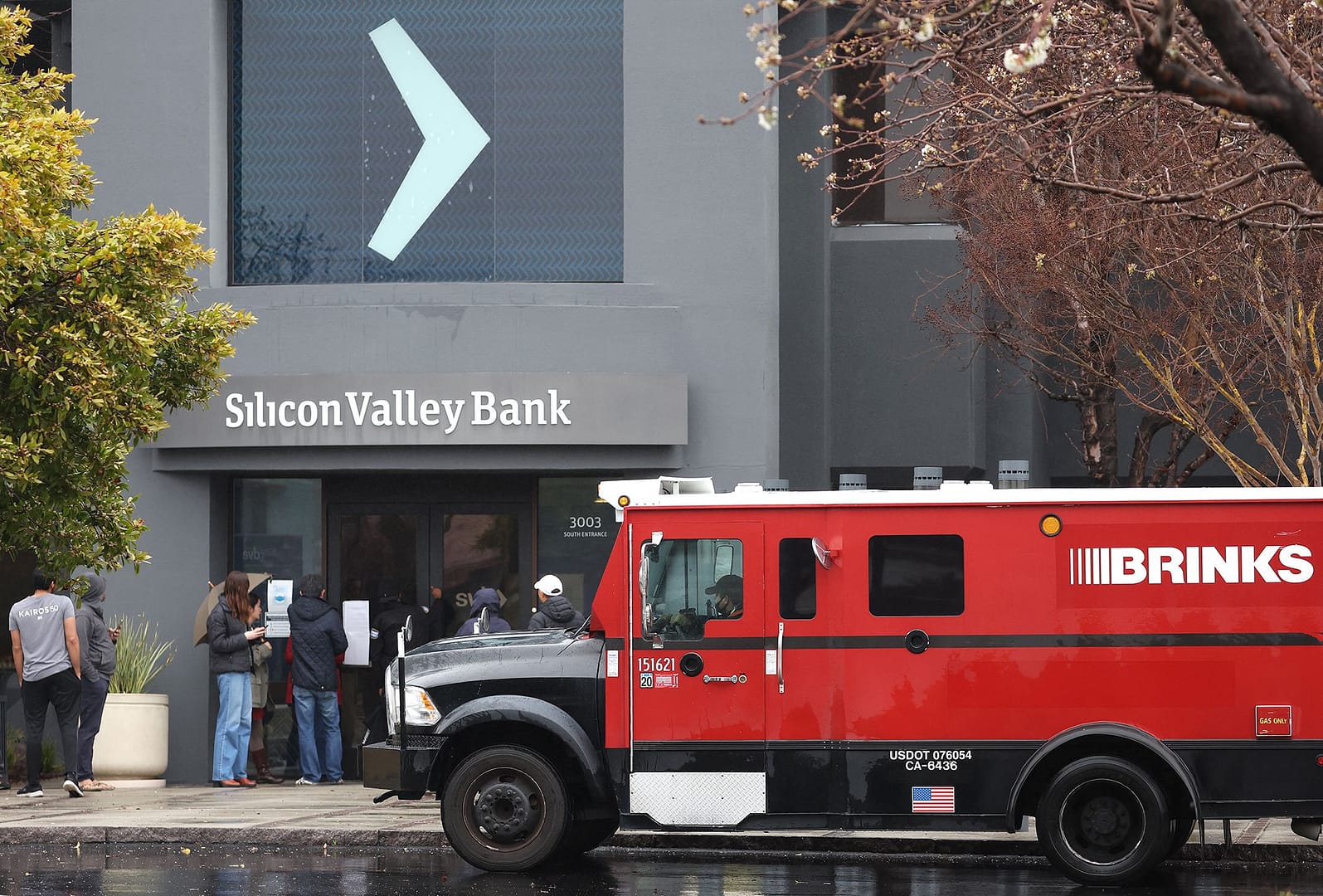The recent turmoil in the financial sector has led to a renewed focus on the potential benefits of cryptocurrencies, particularly Bitcoin as a hedge against inflation and financial instability. As the world watches the ongoing breakdown of crypto-focused banks, we must remember why Bitcoin was created in the first place – to provide a decentralized, censorship-resistant alternative to traditional financial systems. In this blog post, we will discuss the recent collapse of crypto-friendly banks and how this event further underscores the need for a decentralized financial system like Bitcoin.
The Collapse of Crypto-Friendly Banks
Last week, the financial markets experienced a steep fall as regulators shut down Silicon Valley Bank, leading to a mass withdrawal of capital. This news impacted the crypto markets shortly after, as it was revealed that USD Coin (USDC) issuer Circle held over $3.3 billion in reserves at Silicon Valley.
This resulted in a de-pegging of USDC, with its value dropping to as low as $0.87 cents. Following this, two more California-based banks, Silvergate, and Signature, were also shut down. All three institutions were known for being crypto-friendly, and their closure has sparked increased regulatory scrutiny on the crypto ecosystem.
Increased Regulatory Scrutiny On Crypto And Stablecoins
Ramani Ramachandran, co-founder, and CEO of Router Protocol, has suggested that the recent events will lead to increased regulatory scrutiny on the banking rails that serve crypto, as well as closer examination of crypto's contribution to systemic risk.
This scrutiny will also extend to stablecoins like USD Tether, which were already under the spotlight prior to the USDC de-pegging.
Restricting Liquidity: A Challenge To Crypto Adoption
Jonathan Zeppettini, strategy lead at Decred, believes the situation with Silvergate, Silicon Valley Bank, and Signature is a combination of factors, including banks failing to hedge interest rate risk, a classic bank run, and regulators attempting to restrict liquidity.
According to Zeppettini, this clampdown is a result of governments trying to weaken unregulated players and set back crypto adoption. However, he remains optimistic that these ongoing clampdowns could lead to a more robust crypto economy.
The Potential Benefits of A Decentralized Financial System
As the traditional financial sector experiences upheaval, it is essential to remember the potential benefits of a decentralized financial system like Bitcoin.
As Zeppettini points out, the current challenges faced by crypto-friendly banks may ultimately result in the industry moving offshore to jurisdictions that welcome financial technology innovators.
This shift could lead to a more robust infrastructure and a less hostile environment for cryptocurrencies.
The recent collapse of crypto-friendly banks and the subsequent increased regulatory scrutiny highlight the importance of a decentralized financial system like Bitcoin.
Created as a hedge against inflation and financial instability, Bitcoin offers an alternative to traditional banking systems that are susceptible to external influences and regulatory interference.
As the industry faces ongoing challenges, it is crucial to remember the benefits that a decentralized, censorship-resistant financial system can provide in times of uncertainty.
Matt is the founder of TechMalak. When he's not buried face-deep in the crypto charts you can find him tinkering with the latest tech gadgets and A. I tools. He's a crypto investor and entrepreneur. He uses a mixture of A.I and human thought and input into all his articles on TechMalak, further merging man with machine.





